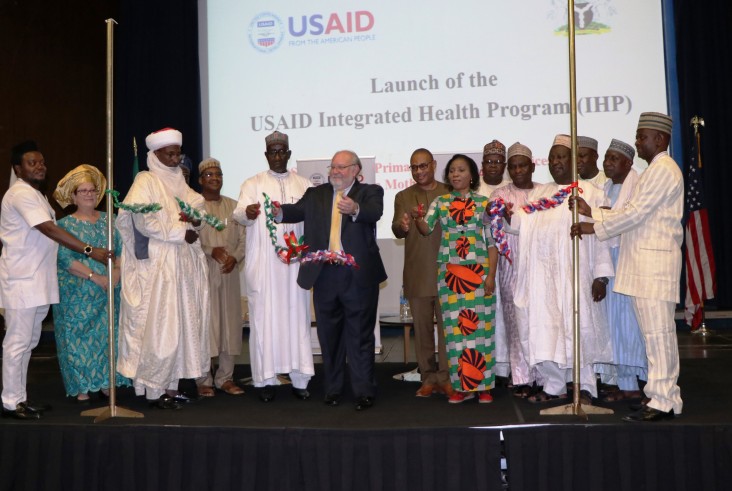Press Release Shim
Speeches Shim

USAID will revitalize primary health care
For Immediate Release
Abuja – On June 18, the U. S. Agency for International Development (USAID) launched a new flagship health activity that will help five states in Nigeria improve access to primary health care services, essential commodities, and increase demand for services.
The five-year, $225 million Integrated Health Program (IHP) will be implemented in Bauchi, Kebbi and Sokoto, with two more states to be added soon. IHP will contribute to revitalizing primary health care by helping the state health systems upgrade clinics and employ an integrated model for a full complement of high-quality round-the-clock health services in every ward.
“IHP will bring quality basic health care closer to the people and support Nigeria to achieve universal health coverage,” USAID Mission Director Stephen M. Haykin said at the launch. “Providing the population, a fighting chance to grow up healthy and reach its potential is critical for Nigeria to build its future on a strong, hardy foundation for the generations to come.”
Implemented by Palladium International with a coalition of international and national nongovernmental organizations in partnership with the states, IHP will contribute to reducing preventable deaths of mothers and children under the age of five. The activity will help these states address direct and underlying causes of maternal and child mortality and assist them to increase their revenues for health to boost the capacity of primary health care delivery.
Bauchi, Kebbi, and Sokoto states all struggle to maintain good health indicators for mothers and children. According to the recently released 2018 National Demographic and Health Survey, outcomes for basic health indices in the three states remain below the national average despite some positive trends in health outcomes over the past five years.
Provision of quality maternity and newborn care in health facilities, routine immunization, early diagnosis and timely treatment of maternal and neonatal complications, malaria, diarrhea, and pneumonia in primary health care centers and secondary hospitals supported by IHP will improve the health of mothers and children, reducing tragic and unnecessary deaths from preventable disease.

Comment
Make a general inquiry or suggest an improvement.